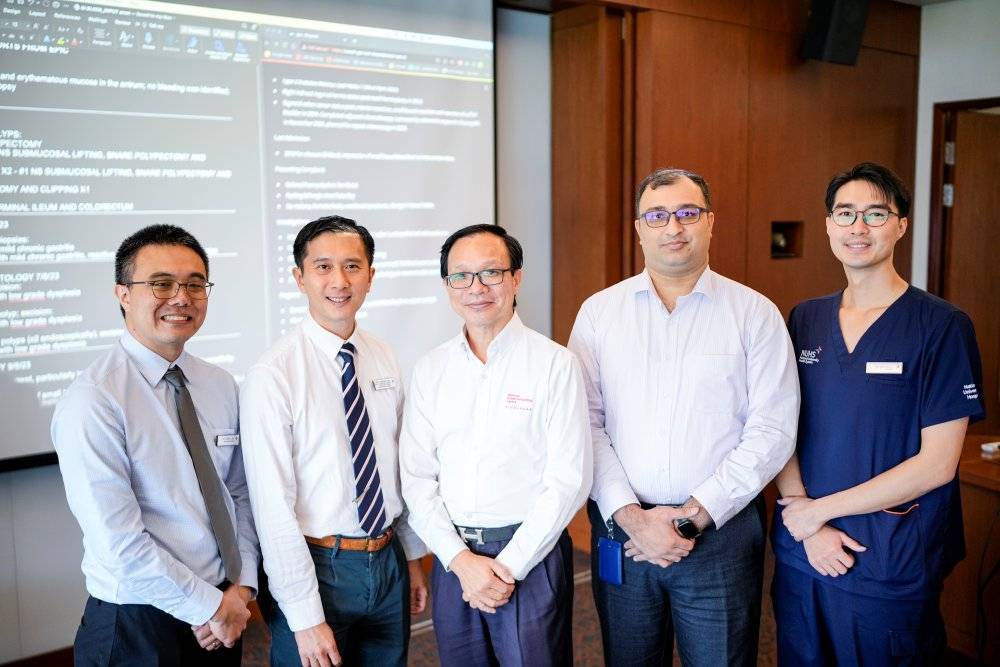The National University Health System (NUHS) in Singapore has deployed the country’s first healthcare sector supercomputer, “Prescience.”
The introduction of this supercomputing facility is transforming medical care in innovative ways.
AI-Driven Patient Care
Prescience, Singapore’s third national supercomputer, began its full operation on 31 July 2023. It’s providing AI-powered tools that enable healthcare professionals to predict a patient’s hospital stay, aiding in the efficient allocation of resources.
Furthermore, doctors can now utilise locally trained Large Language Models (LLMs) to summarise patients’ case notes swiftly. It enables physicians to devote more time to direct patient care, increasing efficiency and enhancing medical services.
Collaboration for Innovation
On 3 December 2021, NUHS signed an agreement with the National Supercomputing Centre (NSCC) Singapore. The collaboration aims to leverage the supercomputer for healthcare and medical research.
The cutting-edge technology of the supercomputer, equipped with multiple NVIDIA DGX A100 compute nodes, permits large-scale training of AI models. This approach was previously impossible with single GPU systems.
Localised Medical Knowledge
The Prescience supercomputer allows NUHS to train large language models for local healthcare needs. It synthesises precise medical knowledge specific to Singapore and helps in reducing administrative work. These benefits are particularly valuable for both healthcare workers and patients.
Advanced AI Tools
The supercomputer has enabled NUHS to develop its version of LLMs, called NUHS RUSSELL-GPT. This technology can summarise patient case notes and write referral letters within seconds. Furthermore, the AI tools allow staff to ask medical questions, significantly enhancing work efficiency.
Plans are progressing to roll out the language model throughout the NUHS cluster, promising an improvement in healthcare delivery across the board.
Predicting Health Trajectories
The supercomputer supports the Patient Trajectory Prediction AI Model. This AI-driven approach is now being researched to predict the severity and path of common conditions, such as urinary tract infections. The aim is to provide targeted care, thus minimising unnecessary interventions.
Enhancing Dental Care with AI
The SMILE AI project is another exciting development made possible by Prescience. This initiative uses machine learning models to train on 3D dental scans and X-rays. The 3D teeth charting model replaces manual tooth charting, and instead of waiting a day for dental cast, it now takes merely five minutes to scan and initiate treatments.
Collecting Data for Future Insights
So far, 400 3D dental scans and 200 dental panoramic tomograms have been collected. The AI tools will aid dentists in making objective clinical judgments on teeth and gum conditions. Dr Wilson Lu, Consultant at NUCOHS, envisions a future where dental care is data-driven and tailored to individual needs.
Conclusion
The launch of the Prescience supercomputer at NUHS marks a significant milestone in Singapore’s healthcare landscape. By integrating AI-driven technologies with medical care, Singapore is setting an example in Asia for innovative healthcare solutions.
The collaborative efforts, cutting-edge technology, and visionary approach reflect a commitment to patient-centred care. With further advancements and implementation, Singapore’s healthcare sector will likely become a global leader in leveraging technology for personalised and efficient medical care.
Photo Credit: NUHS
(From left) Dr James Lee, Assistant Group Chief Technology Officer, National University Health System (NUHS); Associate Professor Ngiam Kee Yuan, Group Chief Technology Officer, NUHS; Associate Professor Tan Tin Wee, Chief Executive, National Supercomputing Centre Singapore; Dr Mohammad Shaheryar Furqan, Lead Data Scientist, NUHS; Dr Wilson Lu, Consultant, Department of Orthodontics , National University Centre for Oral Health, Singapore

